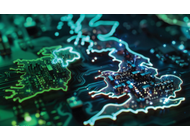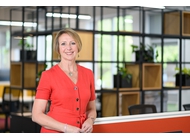- Date 24 Aug 2017
Cambridge Consultants innovation set to solve sustainability challenges for consumer brands
Product design and development firm Cambridge Consultants has developed a smarter recycling concept which tackles the challenge of improving the efficacy of recycling and incentivising consumers to recycle, whilst addressing the end-of-life problem faced by consumer brands.
The smarter recycling system designed by Cambridge Consultants now provides the technology to enable businesses to improve their brand image, engage with their customers and make their businesses more sustainable.
The technology within the system is designed to identify the type of waste the consumer wants to dispose of using image recognition. The system combines machine vision with machine learning and can be trained to recognise new items over time. It can also detect the difference between a recyclable cup and a compostable cup, potentially challenging to the untrained eye. It then indicates which section of the waste disposal unit the item should be placed in.
Through a connected phone app the customer can be identified and rewarded once the item is correctly deposited. This reward could be points to spend, or even a donation to charity.
For consumer brands or food outlets sponsoring a smarter recycling point, or having one in store, encourages customer loyalty and repeat purchases through a reward scheme. It acts as a marketing tool, to show that the brand is proactively leading the way to a sustainable future, and it provides additional consumer insights such as when and where products are consumed. This end-of-life touch point not only extends a brand’s customer engagement, but helps to reduce the loss of potentially recyclable materials to landfill.
Implementing a smarter recycling system helps make a difference to consumers’ behaviour, and influence their decisions about recycling. In the long term, providing clear guidance on which materials to recycle will reduce levels of contaminated waste and will educate the consumer in types of recyclable materials and good recycling practice.
“Consumer brands are coming under increasing pressure from the government, lobby groups and consumers like you and me, to take responsibility for the end-of-life of their products.” said Sajith Wimalaratne, food and beverage commercial manager at Cambridge Consultants. “They are looking to make eco-friendly choices, looking for ways to operate sustainably and profitably whilst improving customer engagement. To date, the focus has mainly been on developing new products and materials that are more recyclable or compostable, but there still remain challenges collecting and sorting recyclates. The smarter recycling system gives a brand a real reason to be in contact with the consumer while showing a commitment to make a positive impact.”



